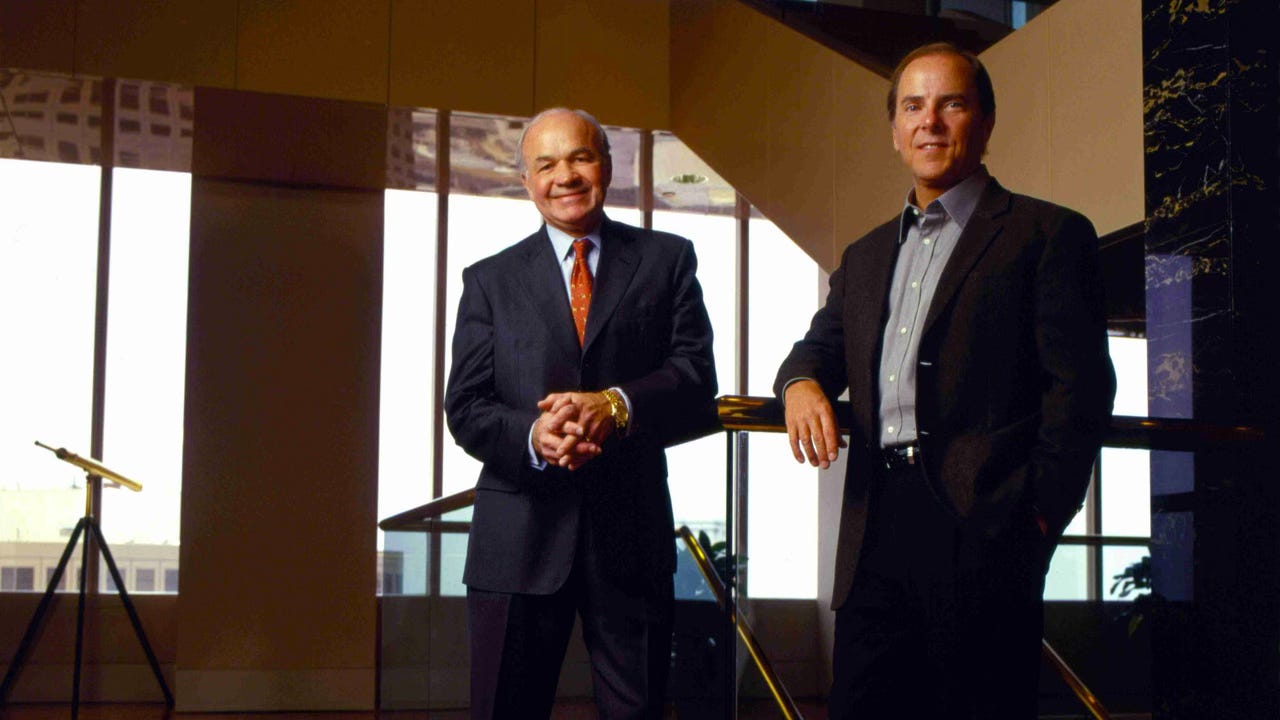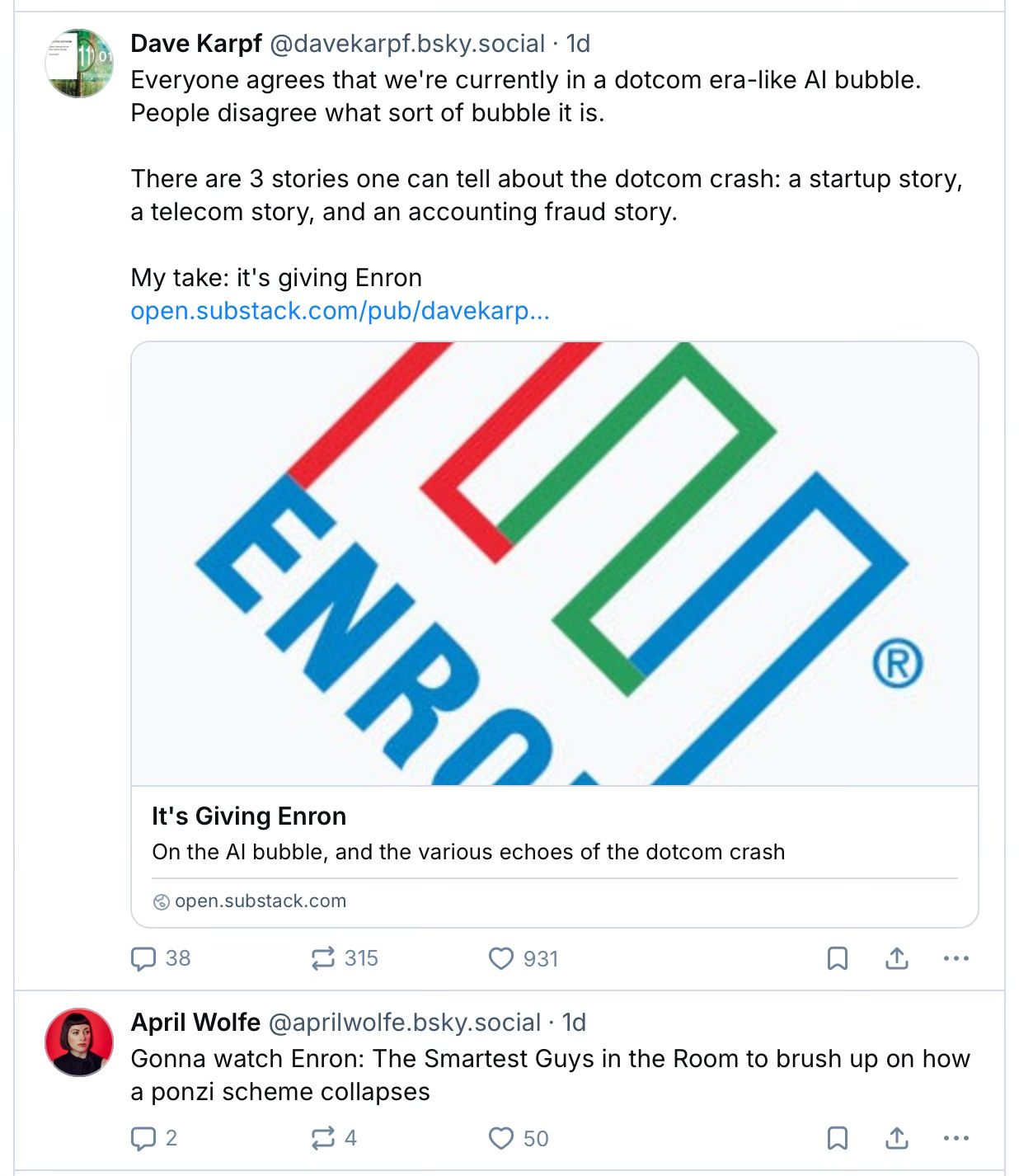Something to watch tonight: Thursday 16 October
Enron: The Smartest Guys in the Room (Gibney, 2005)
When two entirely separate pieces of corporate news and analysis prompt people to start making comparisons with Enron, you know that things ain’t great.
Today it was announced that Elon Musk is using two of his companies (SpaceX and xAI) to buy the billion dollars worth of unsold Cybertrucks that are otherwise “rotting away in abandoned mall parking lots”. Using imaginary wealth to prop up the fortunes of a failing product is a kind of Ponzi scheme, sending the money in one direction while the debts go round in circles until some poor unfortunate is left holding the empty parcel.
Here’s a link to that article in the screenshot above:
We have AI startups valued at $12 billion before announcing any product. Capital expenditures on AI now account for something like 40% of U.S. economic activity. And the big players are all engaged in (ahem) “circular deals” so complicated you need to subscribe to Matt Levine’s newsletter to have the faintest chance of understanding them.
Even the New York Times is starting to see what’s up.
Anyway, I felt sure that I had reviewed Enron: The Smartest Guys in the Room at some point but it was actually released before I started the weekly gig at Capital Times.
No matter. This was the film that put documentarian Alex Gibney’s name on the map, leading to career that includes Taxi to the Dark Side (Iraq War), The Armstrong Lie (cheating cyclist), Going Clear: Scientology and the Prison of Belief and In Restless Dreams: The Music of Paul Simon.
Enron was a corporate success story of the late nineties and early 2000s. Ostensibly an energy company, they got into all sorts of other business as a way to boost the short-term stock price allowing executives to “pump and dump” that stock to enrich themselves at the expense of ordinary investors.
To keep this going — and to juice the everyday numbers — they also created shell companies solely for the purpose of doing business with Enron. These companies forwarded cash to the company and were also vehicles for hiding debt.
This may seem like a complicated story best told via the medium of a spreadsheet but Gibney tells it like the scandalous corporate thriller it is. It is gripping and enraging and it reminds us what can happen when we remove even the tiny guardrails that protect us against crooked capitalism. These people are all the same and are always the same. And they are not “on the side of the angels”.




